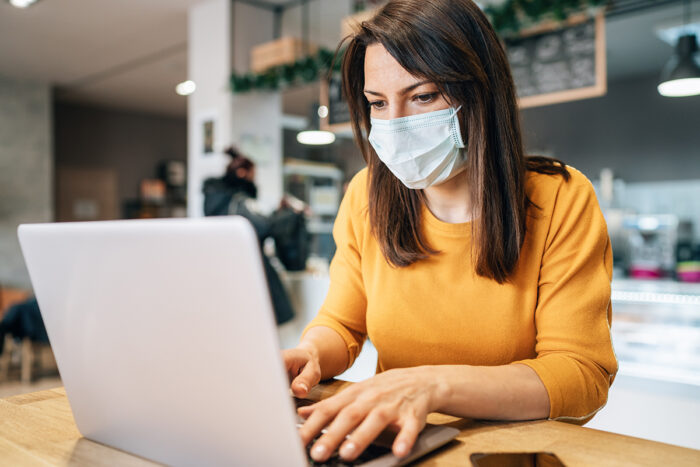Study to examine social media’s effects on stress during COVID-19 pandemic
National Science Foundation grant funds analysis, Twitter-based interventions
 Getty Images
Getty ImagesResearchers at Washington University School of Medicine in St. Louis and Georgia Tech are leading a study using computer algorithms to identify stressors on social media linked to the COVID-19 pandemic. They also plan to design messages that can be delivered over social media platforms to help relieve downturns in psychological well-being.
The impact of social media on anxiety and stress during the coronavirus pandemic is the focus of a new study led by mental health experts at Washington University School of Medicine in St. Louis and computer scientists at Georgia Tech. The National Science Foundation is funding the pilot study.
The researchers plan to use computer algorithms to identify stressors — such as anxiety-provoking messages or messages containing misinformation — linked to the pandemic. They also plan to design their own messages that can be delivered over social media platforms to help relieve downturns in psychological well-being.
“As we continue to stay home as much as possible and remain physically distant from one another, many people rely on social media to stay connected,” said co-principal investigator Patricia A. Cavazos-Rehg, PhD, a professor of psychiatry at Washington University. “But much of what is on social media is anxiety-provoking. There’s also misinformation on social media, and that is problematic, too.”

Using artificial intelligence algorithms, Cavazos-Rehg and the study’s other principal investigators — Munmun DeChoudhury, PhD, an assistant professor in the School of Interactive Computing, and Srijan Kumar, PhD, an assistant professor in the School of Computational Science and Engineering in the College of Computing, both at Georgia Tech — will attempt to identify social media posts associated with stress and anxiety. They also will develop computer models to predict which online communities may be the most vulnerable to those stressors. Online communities can be geographical, but they are defined as communities because of shared interests among their members. The researchers then will sample and survey the members of such communities, and then design and deliver messages on Twitter as possible interventions.
In previous research, Cavazos-Rehg has analyzed social media influences on smoking and vaping behavior in teens. She’s also tracked the influence of social media advertising on marijuana use, as many states have legalized medicinal and recreational pot. She explained that just as social media exposure influences those behaviors, it also can influence one’s psychological response to the COVID-19 pandemic.
“We plan to offer tips about maintaining psychological health, even about consuming social media in ways that help keep emotional well-being intact,” Cavazos-Rehg said. “That might involve taking breaks from the social media activities we’re engaging in or at least spending less time focused on messages related to COVID-19.”






